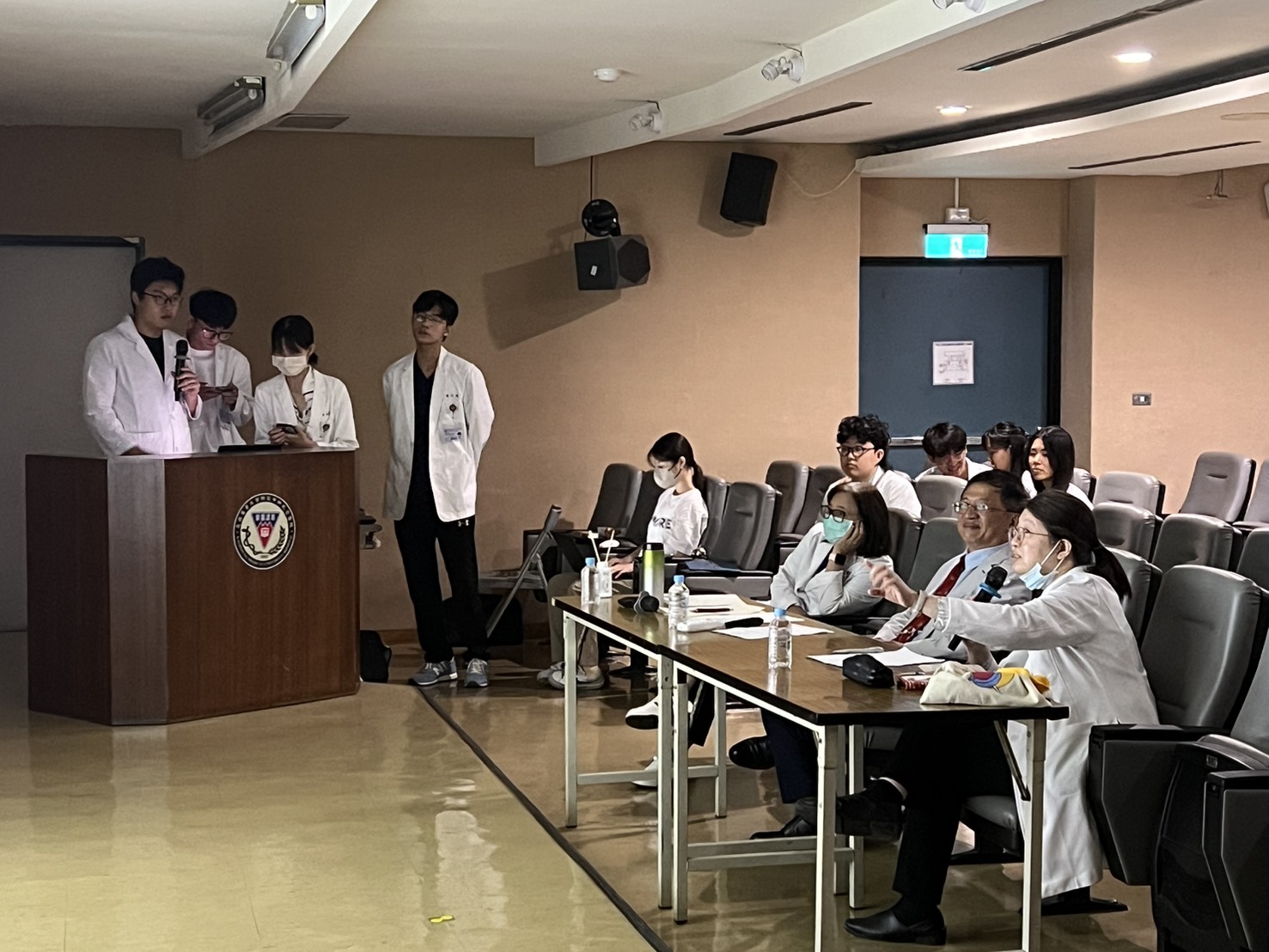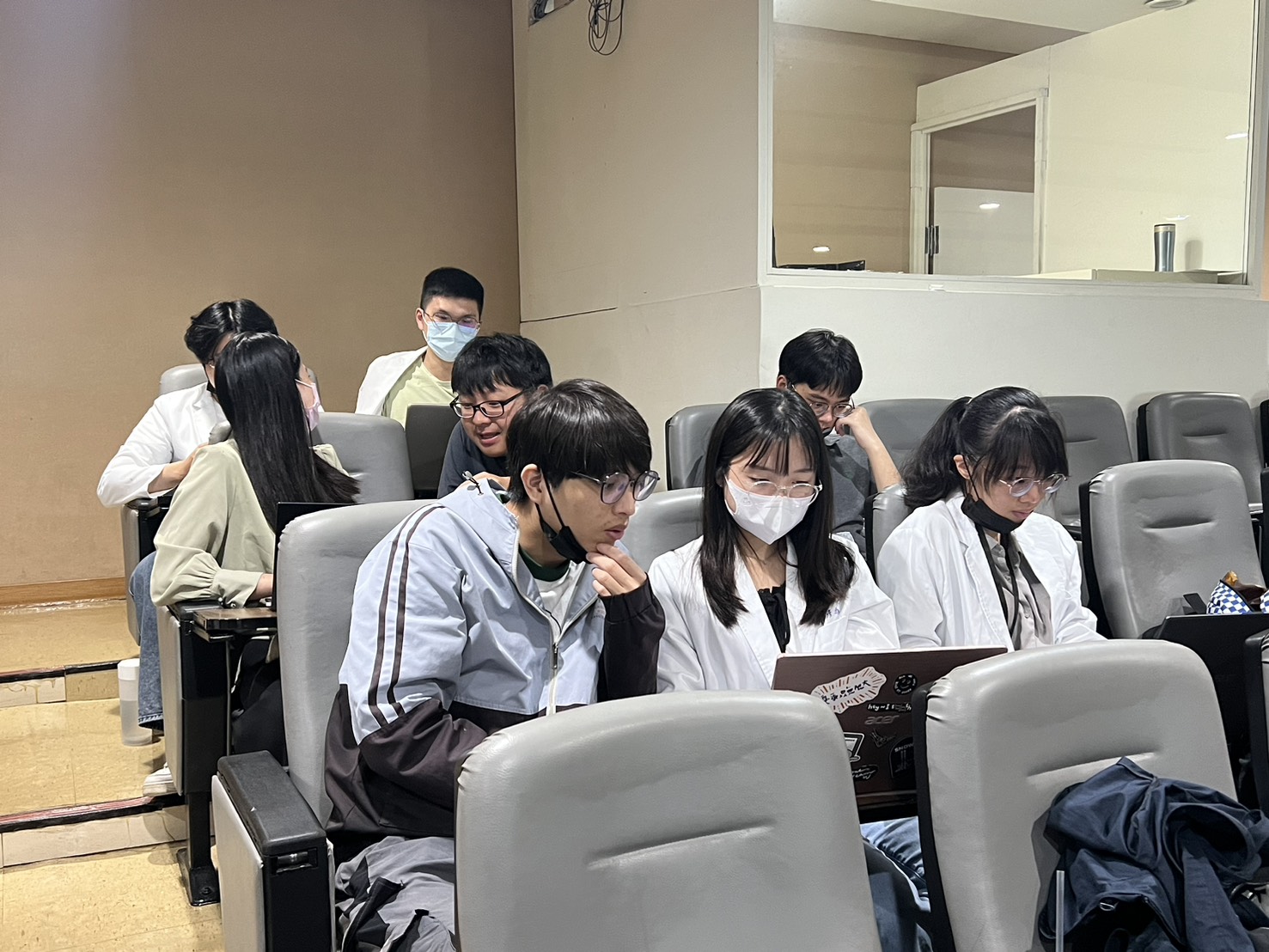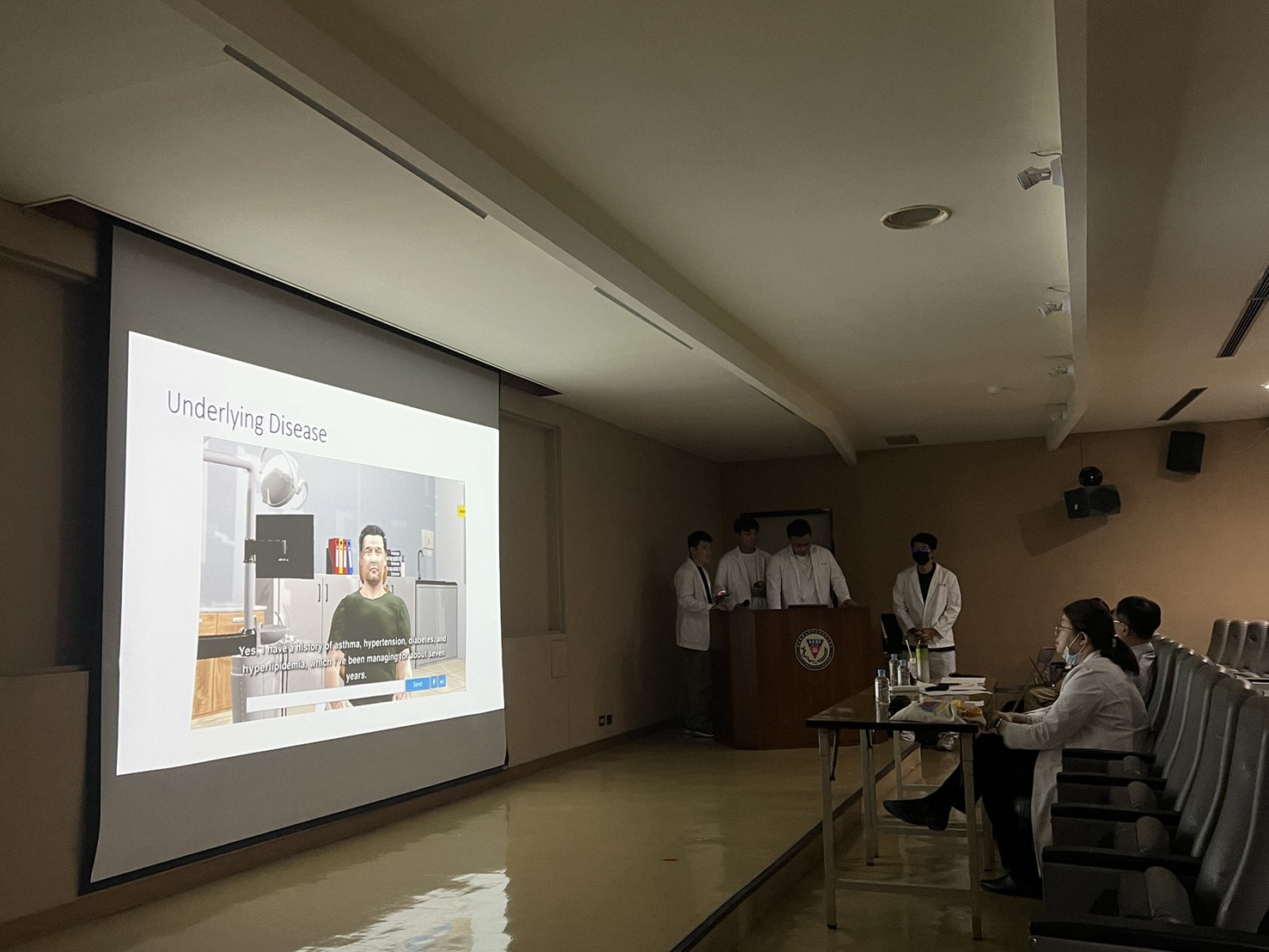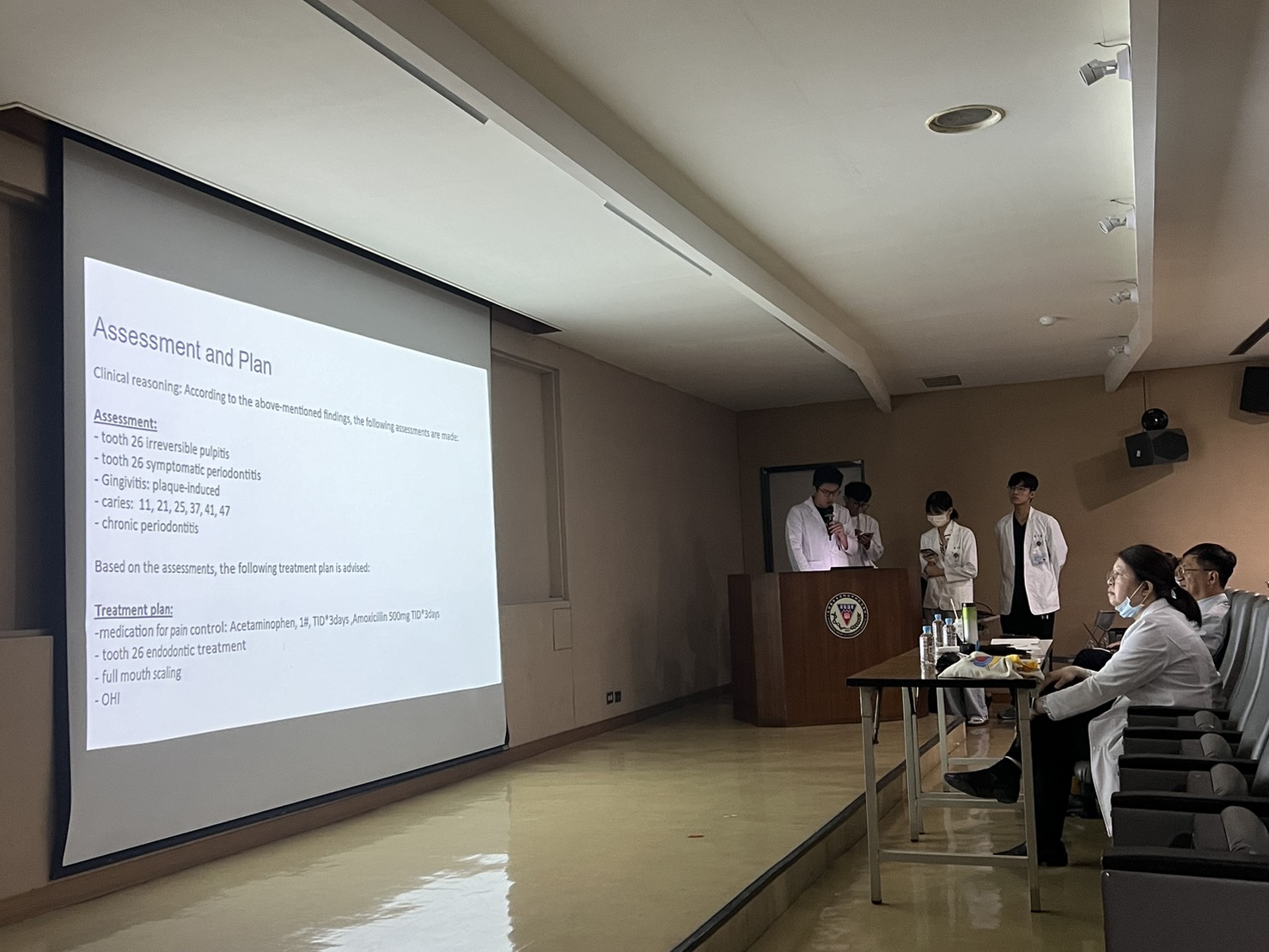Kaohsiung Medical University Bilingual Teaching Program
Achievement Report
for 113 Academic Year
Unit:College of Dental Medicine
|
Name of activity |
College of Oral Medicine "Holistic Oral Health Clinical Diagnosis and English Medical Record Writing" |
|
|
Date : |
May 29, 2025 |
|
|
Time : |
9:00-12:00 |
|
|
Place : |
Kaohsiung Medical University Chung-Ho Memorial Hospital, Third Lecture Hall (2nd Floor, Building W), |
|
|
Target : |
Teachers and students, College of Dental Medicine |
|
|
Number of participants : |
60 |
|
|
1. Activity focus and purpose : To enhance students’ skills in patient interviews, clinical diagnosis, and English medical record writing, as well as their ability to collaborate in interprofessional practice (IPP) and education (IPE), the College of Oral Medicine plans to utilize English-language cases from the “V-DxM Virtual Clinical Diagnosis Training System.” The activity will feature simulated holistic oral health clinical diagnosis and English medical record writing, guided by faculty members from the College and Kaohsiung Medical University Chung-Ho Memorial Hospital. Students will participate in small group discussions and simulated clinical scenarios to strengthen their English communication skills in patient interviews and medical record writing. Through in-depth interactions and hands-on practice, the activity aims to enhance English communication skills, showcase students’ clinical problem-solving abilities, and provide valuable practical experience and growth. 2. Activity features and implementation : This activity incorporates a virtual clinical diagnosis system, combined with English case discussions, to enable students to practice patient interviews, clinical diagnosis, and medical record writing in a simulated setting. Faculty members and teachers from Kaohsiung Medical University Chung-Ho Memorial Hospital co-lead the sessions, guiding students in group discussions and clinical decision-making simulations to foster clinical reasoning and interprofessional collaboration. Through practical exercises and interactive discussions, students can strengthen their English communication skills while accumulating valuable hands-on experience. 3. Quality indicators of activities 1. None 2. It helped me better understand my own situation. 3. Great! 4. Excellent! 5. I think it was fantastic. 6. I gained a lot from this activity. 7. I learned a lot of details about patient interviews and understanding systemic diseases. 8. None. Thank you to the hardworking teachers. 9. I gained a lot. 10. This was a great class for practicing before entering the clinic. 11. The simulation system was a bit laggy, and sometimes the chief complaint and findings were contradictory. I hope it can be improved. 12. The teachers gave us many good suggestions for improvement. Thank you very much to all the teachers. 13. I received feedback from the teachers and learned a lot. 14. I hope there will be more virtual patients so we can practice anytime at home. 15. Care for patients with dementia. 16. Using virtual patients for interviews helped us understand what to pay attention to during patient interviews, especially for those with systemic diseases. We need to be more aware of their medications, test results, etc., to choose the most suitable treatment plan for them. 17. I think it would be helpful to have more preparation time next time. 18. When verifying my Gmail with the software, it froze a bit, and I had to try many times before finding the verification code in the spam folder. Initially, I couldn’t even find it in spam. But the English practice was very practical. 19. Practicing interviews in different ways improved the efficiency of learning. 20. Very good. 21. I learned a lot. 22. Thank you for your hard work. 23. It would be great if there was also a Chinese model for language practice. 24. A great system. I hope the data on probing can be more detailed. 25. A wonderful experience that taught me many new techniques. 26. The teachers put a lot of effort into creating this learning opportunity, and I gained a lot. 27. This virtual patient allowed me to freely ask all kinds of questions, and in the process of reporting, I realized that my interview and approach differed from other classmates. I think that’s actually a great learning opportunity, as everyone will have different clinical judgments in different settings. It also reminded me to think more comprehensively about all aspects of a patient’s situation. 28. I learned a lot and also realized some of my own shortcomings. |
||
|
4. Activity Highlights |
||
|
|
|
|
|
Activity picture-1 |
Activity picture-2 |
|
|
|
|
|
|
Activity picture-3 |
Activity picture-4 |
|




